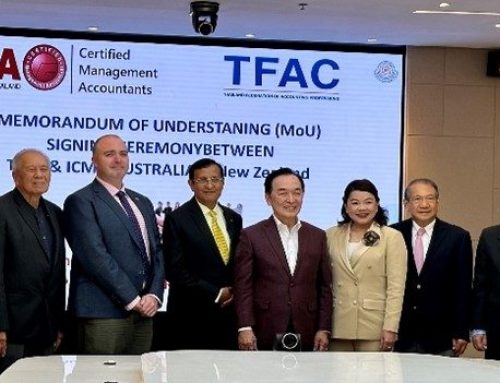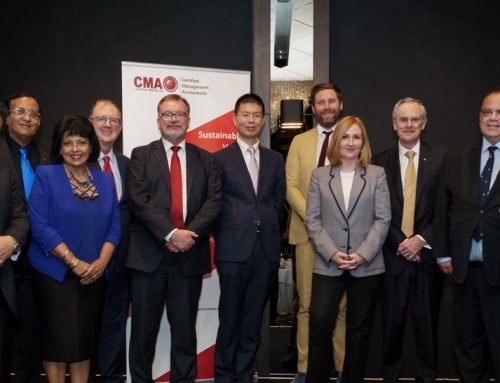Accountants, Lawyers, and Real-estate professionals are actively lobbying to avoid reporting suspicious transactions.
Newspapers and other media outlets have this week reported stories on corrupt activities involving casinos, money laundering, foreign influence, tax avoidance, offshore companies, tax havens, anti-corruption bodies, lax regulation, quantitative easing, and young families being shut out of overheated real-estate markets.
“All these issues are creating a perfect storm that is affecting ordinary Australians” says Prof Janek Ratnatunga, the CEO of the Institute of Certified Management Accountants (ICMA) in a hard-hitting opinion piece titled “Accounting Graffiti: Connecting the Dots of the Pandora Fallout”.
“It is time to connect the dots”.
“These are not disparate issues”, says Prof Ratnatunga, “They all stem from compliant accountants, lawyers and real-estate professionals; along with politicians and government regulators who knowingly look the other way.”
He dives deep into the murky waters in which some high-profile professional firms operate, and highlights why the Australian government has been slow to place any regulatory requirements on them.
The recent release of the ‘Pandora papers’ have landed while the federal government is (supposedly) conducting an inquiry to probe the resilience of Australia’s AML regime.
“It has been more than ten years since the arrival of the AML/CTF Act which requires banks and remitters to detect and report suspicious transactions to AUSTRAC; but ‘tranche two’ that would make lawyers and accountants become AML reporting agents, is still to be legislated.”
“These ‘gatekeepers’ can be used to disguise money laundering and terrorism financing through the misuse of legitimate financial and corporate services. They have the potential to, intentionally or unintentionally, hide the true ownership or control of funds or assets and can also misrepresent the source of funds or the true purpose of transactions”, says Prof Ratnatunga.
“This is despite Australia being pushed to speedily enact these laws by the Financial Action Task Force, a global intergovernmental financial crime agency.”
Clearly there is a need. Then why the delay?
Prof Ratnatunga says that it is due to the lobbying by the Chartered Accountants (CAANZ) and Real Estate professionals (REIA). These bodies have warned that tranche two could create ‘onerous red tape’ that might not improve the overall system and could lead to ‘unintended consequences’ such as higher costs for consumers. These professions are resisting any tightening of reporting requirements with simplistically framed ‘red tape’ and ‘cost increase’ arguments.
He says that reading between the lines, the CAANZ submission also warns that there is a chance that its members won’t do this work anymore as they may get caught and fined.
In reality, he says that there are significant ‘anticipated benefits’ in legislating ‘tranche two’ – as financial crime ultimately affects everybody.
He then connects the dots of all the seemingly disparate issue in the media, by detailing how the placement of millions of dollars of dirty money for laundering in Casinos is being used to buy foreign influence and to also lobby the government to delay or water-down ‘tranche two’ legislation.
He says that this enables criminals to easily place the laundered funds in real estate, either directly or via resident nominees in the same community without scrutiny by AUSTRAC.
Such lax AML legislation makes Australia a ‘Safe Haven’ away from the clutches of both Australia and the governments in their own countries.
Australia appears to be quite happy to receive these funds as long as they are not used to fund terrorism.
It is incumbent upon Australia to meet the international standards and interrupt the illegal movement of money around the community.
“Such criminal activity has a significant impact on the ecosystem protecting the wider community; and ultimately result in property prices that shut-out the younger generation homebuyers who are struggling to get on the property ladder”, he concludes.
[End]For further comment on the above topic, please contact:
Prof Janek Ratnatunga
CEO, ICMA Australia & NZ
Mobile: +61432758380
Email: [email protected]
About the Author
Professor Janek Ratnatunga is the CEO of the Institute of Certified Management Accountants, Australia & NZ. He has held senior appointments at the University of South Australia, Monash University, University of Melbourne, and the Australian National University in Australia; and the Universities of Washington, Richmond and Rhode Island in the USA. Prior to his academic career he worked as a chartered accountant with KPMG. He has also been a consultant to many large Australian and international companies and to the World Bank.



Stay In Touch